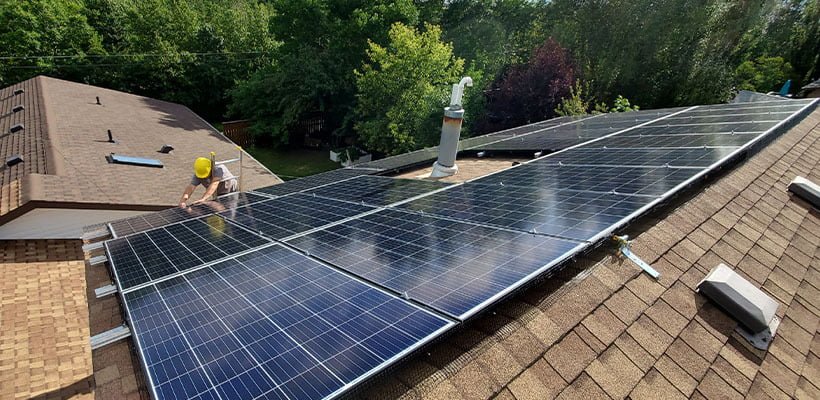Ultimate Guide For Purchasing A Solar Panel System
February 10, 2022

With the ever increasing awareness regarding environmental degradation being caused by the ways humans have been living, more and more people are opting for greener ways of producing energy and living in general.
Solar panels are one of the most sought after ways of producing energy. However, when we talk about having a solar power system installed at our home, many factors go into deciding what can work for you.
In this blog, we talk about the factors you need to consider when choosing a solar electricity system for your house.
What Is Solar Energy And How Is It Practical?
Solar power is the energy produced from the sun that is transformed into thermal or electrical energy. It is renewable and sufficient. Unlike other sources of energy that are risky to the climate, solar power is a clean and eco-friendly form of energy and is a viable solution for all the environmental crises. To get rid of increasing electricity bills and environmental deterioration, we must shift our needs from fuel-based electricity to solar power.
Companies That Manufacturing Solar Panels And Their Efficiency
Solar panels vary in their type of solar cells which act as a crucial factor in their sizing. Some solar panels are more productive than others. The efficiency of commercially used solar panels is normally more than that of household ones.
This efficiency is measured based on the amount of energy a solar panel produces. Due to the progress made in photovoltaic technology in recent years, overall energy conversion efficiency has increased from 15 to 20%. Due to this big jump in energy now a standard size panel can now produce energy up to 370W which previously could only produce 250W.
Sizes, Shapes, And Types Of Solar Panels
Solar panels differ a lot in their length and width and are often about 2 inches thick. If we look at their weight then they are generally 30 pounds or less. Usually monocrystalline, polycrystalline or amorphous.
Although Monocrystalline structure is more efficient in yielding electricity the main disparity is based on the solar cells utilized. But on average their efficiency is 13-18%.
Framed solar panels are the most cost-effective and are applicable for most home solar applications
Some solar panels are foldable; they are compact, less than 5 pounds and can fold up easily. Some are flexible in nature; they are also lightweight but bulkier than foldable ones.
How Many Solar Panels Are Enough For My House?
This is the most confusing part when buying solar panels. The number of solar panels you will need will depend on the amount of energy you are aiming to generate and the insolation of four areas. It can be defined as the number of hours in a day that a solar panel will need to elicit its estimated outcome.
For a rough idea of how many solar panels you will need for your home, Start by splitting up your electrical use in watt-hours per day by the solar insolation method. Measure how much space you have on your roof. Decide whether you need to install expensive and efficient panels or cheaper ones.
Fixing Your Panels
Make sure to locate your panels on an open place on your roof where they will be able to acquire full sunshine between 9 am to 5 pm. Make sure that your panels are not shaded by any trees and branches, and your panel’s orientation is set correctly to receive maximum sunlight.
How Long Do Solar Panels Usually Last?
A solar panel’s electrical system consists of an inverter, mounting system, solar charge controller and batteries so the energy produced can be used in the later hours of the day. Solar panels themselves last generally over 25 years, and the majority of them come with a 20-year warranty.
About Sundwag
Sundawg Solar is a group of 3 electronic technologists that are passionate about solar energy generation.
We take care of all aspects of planning, simulating, utility applications, design, building and development permits, electrical work, the installation of ground and roof mounts, the installation of electronics, cabling, panels and monitoring software, coordinating SaskPower inspections, net meter installation and the commissioning of the system.
